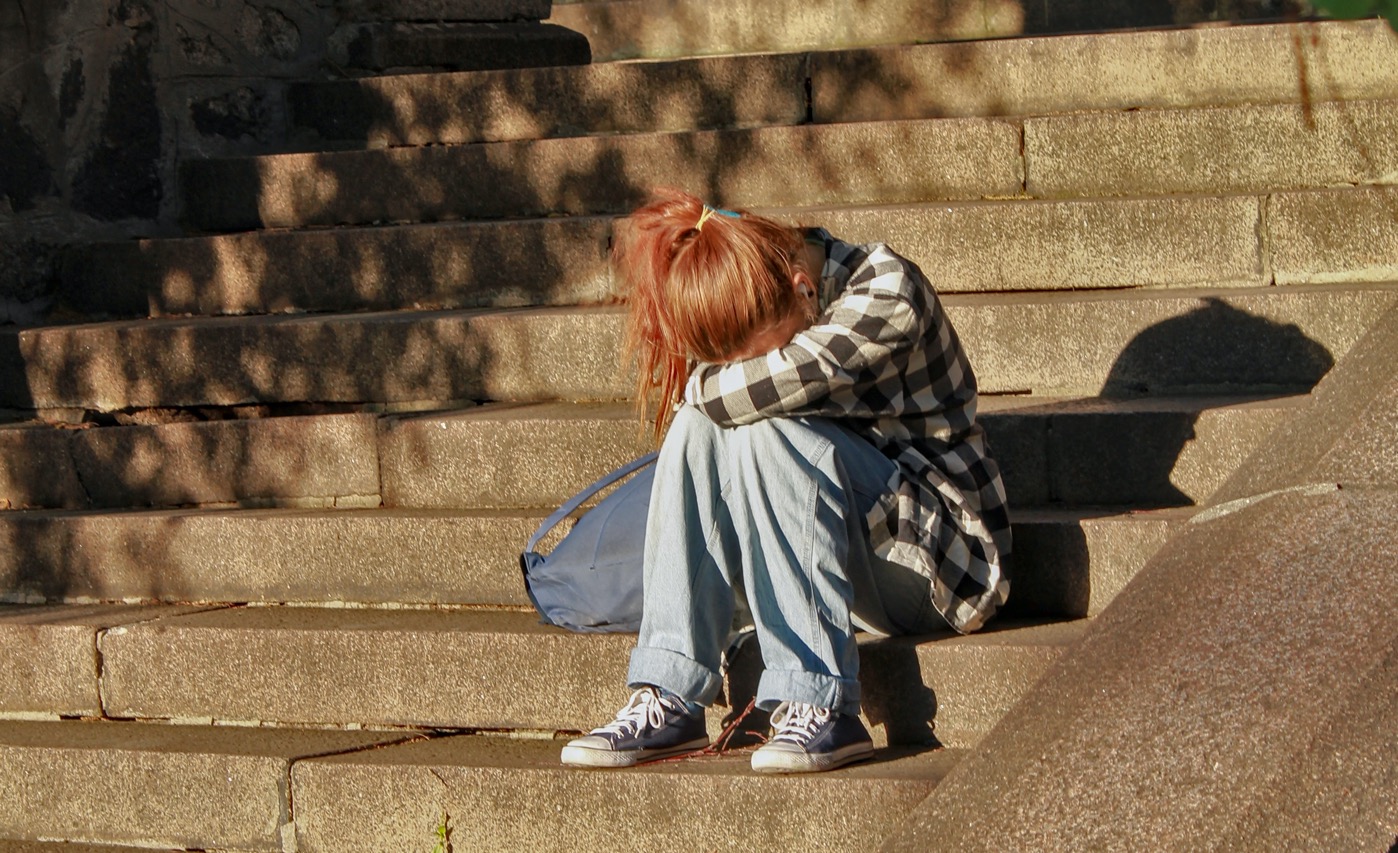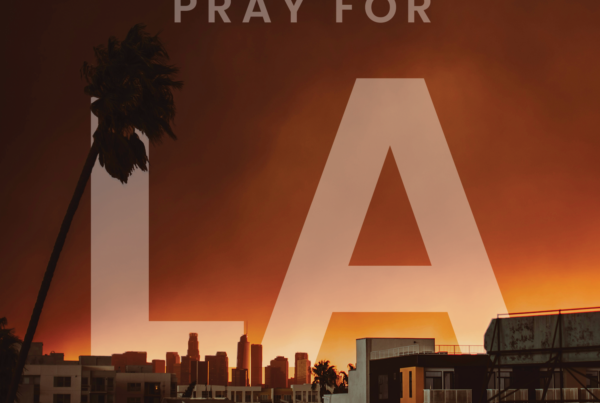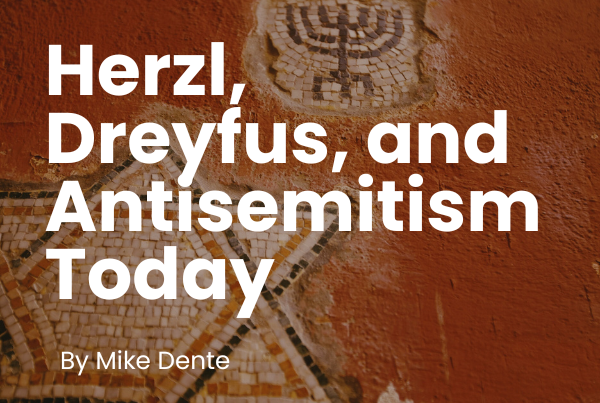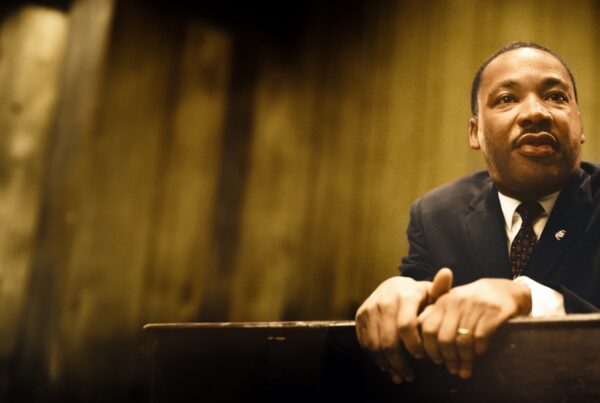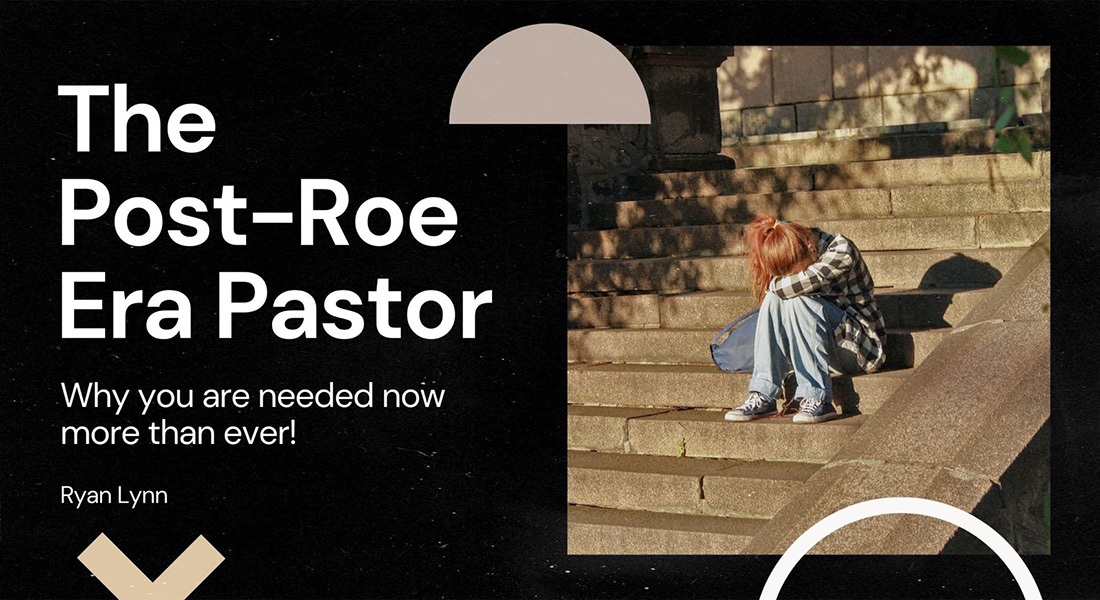
Where will women and men go when they can no longer run from their shame? Where will they find hope when the world seems to be crumbling around them? Many women are experiencing severe anxiety this week because they are unsure what abortion law will look like in the near future.
Possibility of a Post-Roe Era
In the coming months, we could be moving into a Post-Roe era. This week, news outlet Politico leaked the Supreme Court majority opinion (supposedly written by Justice Samuel Alito) on Dobbs v. Jackson Women’s Health Organization.
Albert Mohler extensively covered the leak in his Tuesday briefing.
Mohler says:
“…the big story last night was actually the leak itself. The document, that appeared to be a draft of the court’s forthcoming opinion in the case Dobbs v. Jackson Women’s Health Organization, did reveal a sweeping decision. It would strike down Roe v. Wade and Planned Parenthood versus Casey. It would be a comprehensive repudiation of those two precedents. It would utterly transform abortion law in the nation.”
I think there is an important distinction to be made. Striking down these two precedents will not end abortion in our country: It will diversify it. The legality of abortion would go back to the states. In the past few years, in anticipation of the Supreme Court’s decision, many states have passed “trigger laws” to protect the unborn while other states have built the right to abortion into their constitution.
If you want to know what your state laws will be in the Post-Roe era, have a look at this map:
For further study on state laws, visit Abort73.com.
An Important Question: Where Will Women and Their Unborn Children Find Help?
I cannot help but think of the women battling severe anxiety this week. Many of them are crippled by fear of what the future holds for them.
If I get pregnant, how will I provide for my child?
If I get pregnant, can I finish school?
If my parents find out I am pregnant, will they disown me?
Where can I go to get help with my crisis pregnancy?
When I think of these women, I think of my mom.
In 1986, my mom was informed that she was pregnant… with me. Like many young women today, she faced an unintended pregnancy.
She was single, an unbeliever, 23 years old, and in nursing school. She checked all the boxes for “crisis” pregnancy. But when the nurse left the room after telling my mom she was pregnant, the Lord spoke a word of encouragement to her.
When my mom told the nurse about the voice that she heard, the nurse responded by giving her the Gospel right there in the doctor’s office! My mom gave her heart to Christ moments after being confronted with my unintended life!
That was not the end of her journey. She still faced all the fears and struggles that an unwed mother faces. The answer to her great needs was found in a local Calvary Chapel. I am still in awe each time I read the card she received (anonymously) from someone at the church.
As I write this article, I wonder if you, dear reader, were possibly the one who blessed us 36 years ago?
Here are my mother’s own words to me describing what happened and what was in the card:
“The night before I received this card, I laid in bed and cried. My faith was wavering that night as I wondered how I was going to provide all that you needed. I had nothing for you: no clothes, no baby equipment, and no maternity leave. As I lay in bed crying out to the Lord, I begged Him to forgive my unbelief. I went to sleep that night feeling forgiven, and I slept peacefully that night.”
“The next day this card came in the mail. Before I looked inside the card, I just read the verse over and over (Numbers 6:24, 26), and when I did open the card, there was a check for $3,000. I called the church and talked to Pastor Bob, asking who gave it to me. He kept saying ‘God did.’ That money enabled me to take three months of maternity leave and buy all the baby things I needed! That is the Almighty Lord we follow!”
In our greatest time of need, it was the Church that displayed the love of God to us. Our story illustrates the reality that the Church is a gift of grace to families in need. I am so thankful for that small church-plant that blessed us 36 years ago.
The Church is Going to Be Needed More Than Ever.
In the Post-Roe era, the Church will be needed more than ever. The sanctity of life is not merely a political issue—It is a personal issue. Even if every state outlawed abortion, we would still have crisis pregnancies. Theoretically, we will face even more “unwanted” pregnancies. In the Post-Roe era, I believe the pro-life movement, and the Church, will need to respond in greater magnitude.
Let me share with you a few simple reasons why we are going to be needed in the coming months and years.
1. More “unwanted” children will be born.
The latest statistic from the CDC estimates that 629,898 abortions took place in 2019. With numerous states armed with trigger laws to protect the unborn, we will see a dramatic decline in abortion. This is something to celebrate! Lives are going to be saved if Roe is overturned! But we will also see a dramatic increase in unwanted pregnancies.
It is a tragic reality that there will be parents who find themselves in these situations and choose to define their children as unwanted. But we know, as the body of Christ, there is no such thing as an unwanted or unnoticed child. We are not defined by the attitudes of our birth parents but by our Heavenly Father. The heart of Christ is for the orphan. This is the Gospel: We were once orphans, enemies of God, and He adopted us into His family.
As J. I. Packer says in Knowing God:
“You sum up the whole of New Testament religion if you describe it as the knowledge of God as one’s holy Father. If you want to judge how well a person understands Christianity, find out how much he makes of the thought of being God’s child, and having God as his Father. If this is not the thought that prompts and controls his worship and prayers and his whole outlook on life, it means that he does not understand Christianity very well at all.”
As the Church, how we love orphans declares the Gospel to a broken and selfish world. Adoption flies in the face of the “me first” American culture. Adoption not only silences the critics, it also displays the Father to a world of spiritual orphans. In the Post-Roe era, we will need to support adoption in a significant way. Adoption is not the only answer to unwanted children. The Gospel transforms hearts of sinful parents. We need to share the Gospel and be the Gospel to broken families. This may involve foster care or financial aid.
2. Post-abortive mothers will face insurmountable guilt.
In our postmodern society, legality is the same as morality. I have worked with youth for 16 years. Often their common justification is not morality but legality. If it is legal, they argue, it is moral.
What does this then mean for abortive women? Statics show 24% of women will have an abortion by age 45. That means that 1 in 4 women over the age of 45 may face guilt because of their abortions. Many women may, for the first time, recognize that their abortion was immoral because now it is illegal. Still, others who have always known in their hearts it was immoral may be forced to face their deepest hidden fears and shame. How should we respond as the Church? Scott Klusendorf, in his book The Case for Life, brilliantly lays out our response:
“My message to that hurting post-abortion woman was simple: You don’t need an excuse; you need an exchange—your sinfulness for Christ’s righteousness. The Bible speaks of this exchange in 2 Corinthians 5:21: “For our sake He made Him to be sin who knew no sin, so that in Him we might become the righteousness of God. If you’ve had an abortion, you don’t need an excuse. You need an exchange—His righteousness for your sinfulness.”
There it is. The Gospel. No excuses; complete atonement. Most post-abortive women know in their hearts that they have taken a life. Many erect a series of defenses to protect themselves from the pain of their past. When their state now declares abortion illegal, they may face guilt for the first time. We do not need to excuse their sin; we need to point them to the one who can forgive it. We need to point them to Jesus, the Savior who died for their sin.
As pastors, it’s essential that we shepherd people to the truth, even if it’s the hard truth! We must help people see the reality of their sin because if people don’t face their own darkness, they won’t experience the freedom of repentance.
The reality is there are women who need to face and grieve the truth that they chose to take a life. There are boyfriends, ex-boyfriends, and husbands who need to face and grieve the hard truth that they pressured or even forced a woman to take a life.
Once this hard, sad truth is acknowledged, it may crush people’s hearts, but that’s where the beauty of the Gospel comes in. As leaders, we should never let people wallow in their sin but immediately point them to grace and the beautiful exchange that the Gospel offers: His righteousness for our sinfulness.
We can help both women and men see that their story doesn’t end with abortion—it begins at the Cross.
Jesus is ready to forgive all sins, yes, even the taking of a life. He restores and redeems the broken. Jesus wholly exchanges the post-abortive identity of “one who has killed” for the identity of “one Jesus died for, beloved daughters and sons.”
He gives them hope that one day, those who chose abortion will see their children again in heaven, and those reunions will be a tearful, joyous, extraordinary declaration of the power of what Jesus did on the Cross.
I would also encourage you to connect with your local pregnancy care clinic to find post-abortive counseling. We cannot marginalize the deep pain that post-abortive families carry. It is important to mention that this counseling is not only important for post-abortive mothers but post-abortive fathers too.
3. Many will become complacent because of perceived victory.
The overturning of Roe and Casey would be a huge victory politically. I am not dismissing its impact. But those of us who are in the pro-life movement also understand that this does not bring an end to abortion. It returns the issue to the states.
But my biggest concern is not political complacency, but rather, personal complacency. We, as the Church, are in danger when we no longer have something to fight against because we may forget that we have something to fight for: broken families. When the dust settles and abortion is out of the mainstream media and social media news feeds, will we remember our neighbor with the crisis pregnancy?
We have to move from being pro-life in sentiment to pro-life in conviction. We cannot rely only on a vote. We must participate in our broken communities. We must continue to support just laws, but we also need to support the broken homes.
4. Shame will drive young girls to abortion-friendly states.
As a youth pastor, one statistic has never left my mind.
“Many abortion patients reported a religious affiliation—24% were Catholic, 17% were mainline Protestant, 13% were evangelical Protestant and 8% identified with some other religion.”
Why are so many of our kids ending up in abortion clinics? Since when has the abortion clinic become a safer place than our youth rooms and sanctuaries? Shame drives Christians into unthinkable acts of cover-up. I am looking at you, David (2 Samuel 11). Actually, this has been happening since the day Adam and Eve sinned in the garden.
I was 18 years old when I was in Bible College seeking to be a missionary. I volunteered in youth ministry, on multiple worship teams, evangelistic teams, and taught on occasion. That same year, I fell into sexual sin with my girlfriend and continued to live a double life. I was struggling to stay pure on Saturday night and worshipping God on stage on Sunday.
During my final semester, I went on a mission trip overseas. My girlfriend called me and said, “I am weeks late. I am scared, and I have no one to help me. I have no way to buy a pregnancy test, and I do not know how to even go about doing that.”
I made one of the hardest calls of my life: I called my mom and confessed my sin and asked for help to walk us through the consequences of this decision. My girlfriend did not end up being pregnant. But what has stuck with me is the great lengths that I went to, as a Christian kid, to hide my sin and pretend everything was normal.
Just because abortion is no longer offered in your state, it does not mean that young people will not find ways to travel to cover their sins. How do we address this shame within the Church? We need to preach the covering of sin provided by Jesus on the Cross so that they no longer feel the need to cover up their sin with abortion.
When we first give our hearts to Christ, we are abundantly aware of the sufficiency of the Cross. We know that the Cross bridges the gap between our wickedness and His holiness. But as we grow in our understanding of His holiness and our wickedness, we often fail to grow in our understanding of the grace of God.
If our understanding of the Cross does not grow daily, we will fill in the gaps with pretending and performing. It is this pattern of pretending and performing that leads young people to hide their sin with greater sin. The remedy to the covering up of sin is Gospel preaching and Gospel community.
Young people need to be convinced that they have a High Priest they can go to in their darkest hours. They need to be convinced that their Christian community will walk alongside them.
What Can We Do?
One of the greatest challenges a pastor faces is being confronted with endless real needs while no one seems to recognize our limited resources.
We are expected to be experts in current events, psychology, sociology, and politics, and now we can add health experts, given the last couple of years.
Maybe you are reading this article thinking, “There is no way that I can engage in the pro-life movement. I cannot add another thing to my plate.”
In 2019, I began writing and speaking on pro-life issues. I began a collective called Speak Life Collective. You can find our content at speaklifecollective.com.
One thing I repeatedly communicate is, “You don’t have to do everything, but we all can do something.” Everyone is going to have a different bandwidth to engage in pro-life issues. But to do nothing would be a failure on our part as pastors and Christian leaders.
There are several things we can do to engage in pro-life work. We have listed these on our website: Share your story, educate yourself, vote pro-life, engage in activism, or volunteer at your local pregnancy care center.
But what is the most important thing you can do? Pray.
Prayer will end abortion in America. Prayer is ending abortion in America. Since “40 Days for Life” started in 2007, 21,534 lives have been saved, 239 abortion workers have quit, and 116 abortion centers have closed.
Forty-five percent of U.S. abortion facilities went out of business forever following a 40 Days for Life campaign even when located in liberal states, including those in cities like San Francisco, Seattle, Chicago, and Los Angeles. Former abortion workers report that when somebody prays in front of an abortion facility, the no-show rate for abortion appointments goes as high as 75%.
If I could encourage the Church to do one thing, it would be to Pray. Prayer is the greatest work the Church could ever do.
And as we pray, let us ask God to use us—not only end abortion in America, but to bring the hope of the Gospel to broken families.
–
Editor’s note:
We hope you found this article helpful. To hear more from Ryan, check out this section on his website that contains great information on how to navigate hard conversations about abortion. You can also listen to this conversation our team had with him on one of our shows, The GoodLion Podcast.
CalvaryChapel.com does not necessarily endorse or agree with every message or perspective in the diverse links posted. By providing these links, we hope to help you stay informed of important events and conversations taking place in the world that are relevant to the Christian faith.

